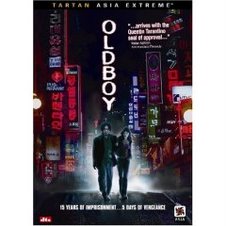Sometimes, in our posts and discussions, we take our experiences and use them to support general statements. But anecdotes do not equal data. Personal experiences are not global. Other people know all the same things I do about church history, and yet have not come to the same conclusions as I have about the mission and character of Joseph Smith. While I tend to look at my experiences as "normal," that doesn't mean that my responses are "the norm." They're just mine.
A comment exchange starting at #71 in the FMH Trailer Trash thread brought this subject up for me. It was a good exchange, about God-as-cosmic-vending machine. The statement "this is what happens to me" received the reply "that doesn't mean what you are saying." It all resolved very nicely, and interestingly, with a reference to Buddhism (so it must be true). But the initial exchange is one I've seen over and over: "This happened." "That doesn't mean what you say."
"Lead balloon moments," when contradicting data comes up in a class discussion and the room falls silent, are a well-worn experience in the DaMU. My own LBMs, however, have been few and far between. In one Gospel Doctrine class, when I piped up with "I don't agree with that at all," and went on to explain why, it resulted in an interesting and insightful lesson. I didn't add much beyond my initial disagreement; the other participants really moved the discussion forward. I wasn't the only one who didn't believe the premise being offered, and the resulting discussion led us to explore a richer variant of that premise. Just the same, only different.
Personal conversations and lessons have the advantage of immediacy. We don't really have that here in the 'nacle. It takes longer to get through the dialogue:
"This Happened to Me."But as the discussion on FMH shows, we are often able to get there eventually. I think it's an example of what's best about the 'nacle: moving from sharing experiences to understanding, and thinking of old ideas in a new way.
"That doesn't mean what you say."
"I know that. But it's what happened."




11 comments:
DaMU?
DisAffected Mormon Underground - a collection of message boards: "New Order Mormon Mormons", "The View From The Foyer", "Faces East", "The Folk of the Fringe"
Oops, that was supposed to be "New Order Mormons"
This is great, Ann. Thanks! I think what you say underscores the importance of respectful dialogue, but also of realizing other people's experiences are different from your own. And that these differences don't threaten or detract from your experiences.
One shouldn't get the response of "that doesn't mean what you say" unless the relating of the experience goes well beyond "this happened" into "this happened to me and the experience means this and this meaning applies to others."
In the FMH thread, I think the commenter never meant to imply more than "this happened," but others read more into it, so there had to be clarification.
I think this arises so much in the DAMU/bloggernacle partly as a reaction to the typical LDS formula: "I did X and then Y happened. I testify to you that if you do X, then Y will happen to you, too." That formula treats anecdotes as data, and treats personal experiences as global. And those of us (in or out of the church) who don't care for the formula for that reason are probably overly sensitive when people seem like they're using the formula.
Beijing,
I wholeheartedly agree.
It's one of the main disadvantages of living a religion that places so much emphasis on personal conviction (often to the detriment of correct or even logical doctrine).
Seth R.
I think one way that internet communication differs from real life communication is that it's easier to disagree and point out the limitations of someone's statements (that is, that my experience doesn't apply to everyone else, and YMMV.)
My reaction to "just have faith" stories is almost always negative. I get particularly annoyed by stories about things like God helping someone get their printer to print. It's hard to treat such stories with respect, and sometimes I feel guilty for even listening - usually, when people share those kinds of stories, they think they are in a "safe space" (like a fast and testimony meeting) and who am I to rain on their parade?
But on the other hand, I think we miss opportunities for learning from each other when we let these kinds of statements pass without comment. Maybe I could learn more about faith from these people. Maybe they could get a grip on reality from me :)
It's even better when Bro. X gets up in testimony meeting and tearfully announces
"And I've learned to forgive my wife even though she ran off with that other man ..."
Brother X's wife was conveniently out-of-town that Sunday.
But attendance at Fast-and-Testimony meeting the next month was DEFINITELY up.
Seth R.
Seth, I have heard that story before. Isn't it apocryphal? You're pulling my leg, right?
I sometimes don't recognize silliness as silliness...
Nope, not apocryphal.
Happened in my own ward in South Dakota. I was too young to remember it, but my mom and dad remember it quite clearly. They remember the guy's name too. I heard it directly from my dad.
Seth R.
P.S. You might have heard it before, because I've related it on the nacle before.
Great essay, Ann. I apologize for splitting hairs but here it is.
Anecdotes provide data points. Depending on how they relate to theory, they can inspire great ideas. Anecdotes can falsify but cannot validate our beliefs.
Post a Comment